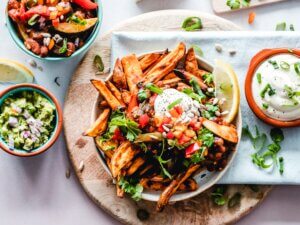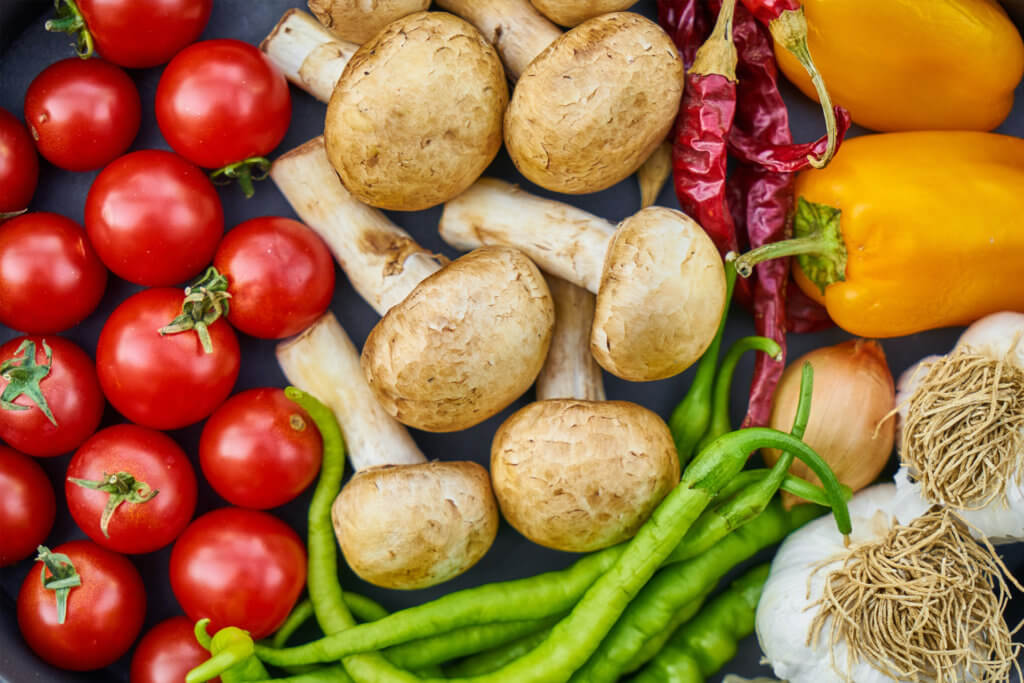The pescatarian diet is perfect for people who want to reduce their meat consumption, but who are not ready to take the plunge into eating more plant-based foods. If you adopt a balanced pescatarian diet, you will get all the benefits associated with a vegetarian diet, but without the negative effects associated with eating a large amounts of fish and seafood all the time. While it is true that pescatarian diets are not as popular as vegan, vegetarian, Mediterranean, paleo and keto diets; they can help you achieve your weight loss goals as well as improve your general health, if applied correctly.
If you replace meat-based meals with fish, you are more likely to reduce calories and fat from your diet, which can help you maintain a healthy weight, and you get to eat seafood every day. Some people who choose to cut out meat from their diet find it easier to follow a pescatarian diet than a vegetarian one because it is easier to find and get enough protein, while still getting the health benefits of primarily eating fruits, vegetables, nuts, etc. Both diets focus on plant-based foods, but fish and seafood can also offer health benefits you can’t necessarily get through plant-based foods alone. Nutrients like fish oils, iron and other minerals not as easy to get through fruits and vegetables alone.

In a diet consisting of plant-based foods, the addition of fish and fish products improves a wide range of health factors. According to a seven-year study published in the JAMA Internal Medicine, a journal of the American Medical Association, people who eat plant-based foods in addition to fish have a 43% lower risk of colorectal cancer. A fish-based diet means you get plenty of vitamin B12 and fatty acids, nutrients that are more difficult to get when you eat vegan. Seafood is an excellent source of zinc, but if you are vegetarian, you should include plant sources of zinc in your diet such as legumes, cereals, nuts and seeds. A more plant-based pescatarian or paleo diet is a healthier approach to longevity that includes sufficient amounts of protein.
The pescatarian diet is really just a variation of the vegetarian diet and focuses on plant-based foods and seafood while eliminating meat and poultry from the diet completely. It is classified as semi-vegetarian, which means that there are foods in the form of seafood, including shrimp, clams, salmon, crab and lobster included in the diet. However it is still primarily focused on being plant-based in terms of the portion of calorie consumption by an individual. Many people on a pescatarian diet do not eat meat, fish or poultry at all times either.
If you are thinking of adding more vegetarian or vegan foods to your diet, but are not sure whether you want to completely eliminate animal foods, try limiting meat consumption to several times a week. This is known as Flexitarianism and is another variation of the semi-vegetarian diet. The flexitarian diet is a primarily plant-based diet that sometimes includes meat, dairy products, eggs, poultry and fish, but only in small quantities or just occasionally. Besides, it’s not always easy to find vegetarian options sometimes, but finding some kind of seafood can be easier to manage in most cases. This can be especially true for people with an active or busy lifestyle.
Foods consumed on a vegetarian diet include a varied mix of fruits, vegetables, cereals, healthy fats and protein. When most people think of the vegetarianism they tend to eat plants, which means the excluding meat, poultry and fish. While you may have the impression that proteins are more difficult to obtain on a vegetarian or vegan diet, we teach that the main source of protein does not have to be found in meat and poultry. Replace the protein in meat in your diet with a variety of protein-rich plant foods such as nuts, seeds, legumes, tempeh, tofu and seitan.

A vegan diet is the most restrictive form of vegetarianism, as it does not contain meat, poultry, fish, eggs, dairy products and other animal products of any kind. Lactose-vegetarian diets typically exclude meat, fish or poultry as well as eggs or foods containing these foods, but allow for dairy products. A vegan diet can be difficult to maintain depending on your lifestyle and the availability of vegan friendly options in your area. Since a vegan diet typically excludes meat and poultry as well as fish, eggs and dairy products or food containing these products.
It is also worth noting that there is some overlap between the pescatarian diet and the paleo diet. The main difference there is that paleo allows for the consumption of any fresh, unprocessed meat, where the pescatarian diet only allows for fish or seafood to be used as the meat in a meal. If you try to be a paleo or pescatarian, follow this simple dietary plan. The rule is that your diet should consist of fish, fruits, vegetables, nuts and seeds. This means that people on a paleo diet should eat only unprocessed meat, fish, fruits, vegetables, nuts and seeds and exclude dairy, legumes and cereals. The key is to maximize the portion of your meal that is fruits and vegetables while minimizing the portion that is meat.
Some people opt for a pescatarian diet for ethical reasons or for the desire not to eat meat, livestock or poultry. Some say that a pescatarian diet should not contain eggs, while others say that eggs should be part of the diet. The rules are not as set in stone as some people think they may be. It can be flexible to some extent, but keep in mind that you get the maximum benefit with most effort. A pescatarian diet should include a balanced mix of proteins from meat, fish and plant sources, grains, fruits, vegetables and dairy products and meals should be balanced with nutrients. Always strive for that balance.
Apart from the ethical and environmental benefits of removing meat from the diet, a vegetarian or semi- vegetarian diet can reduce the risk of chronic diseases, support weight loss, and improve the quality of the diet. If you have a specific diet in mind or health conditions to consider, consult a doctor to understand which dietary choices are right for you. Remember to have a balanced approach to your dietary choices.

